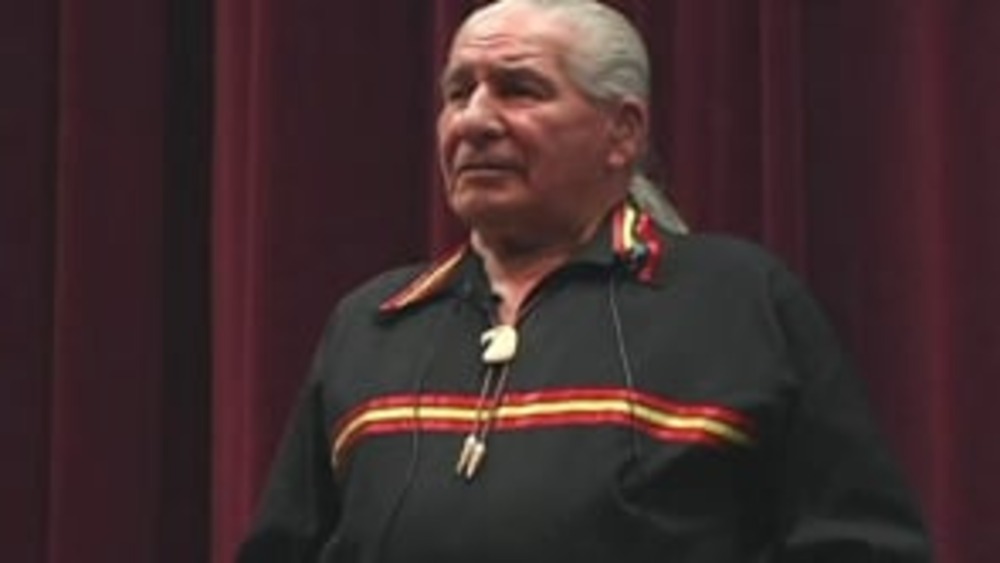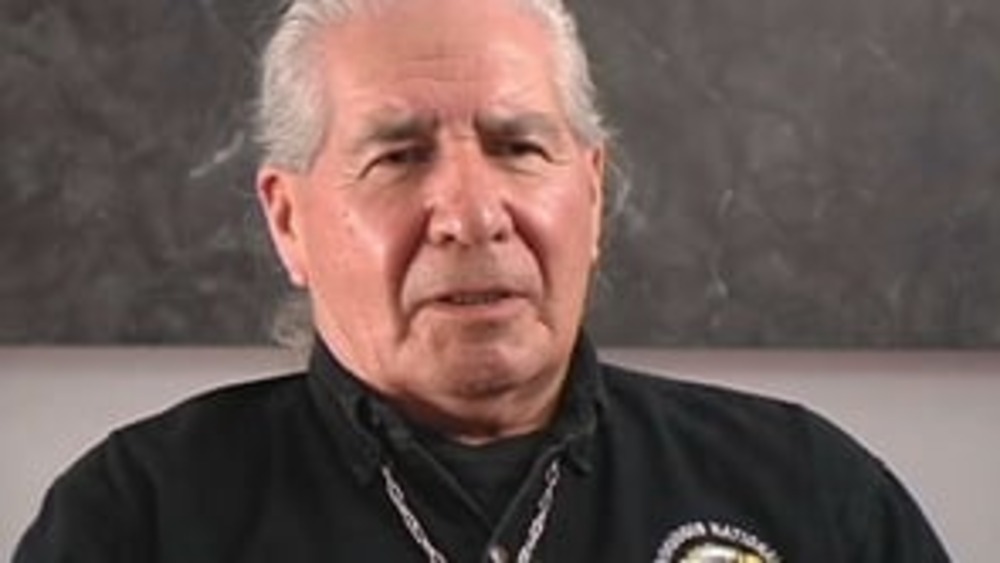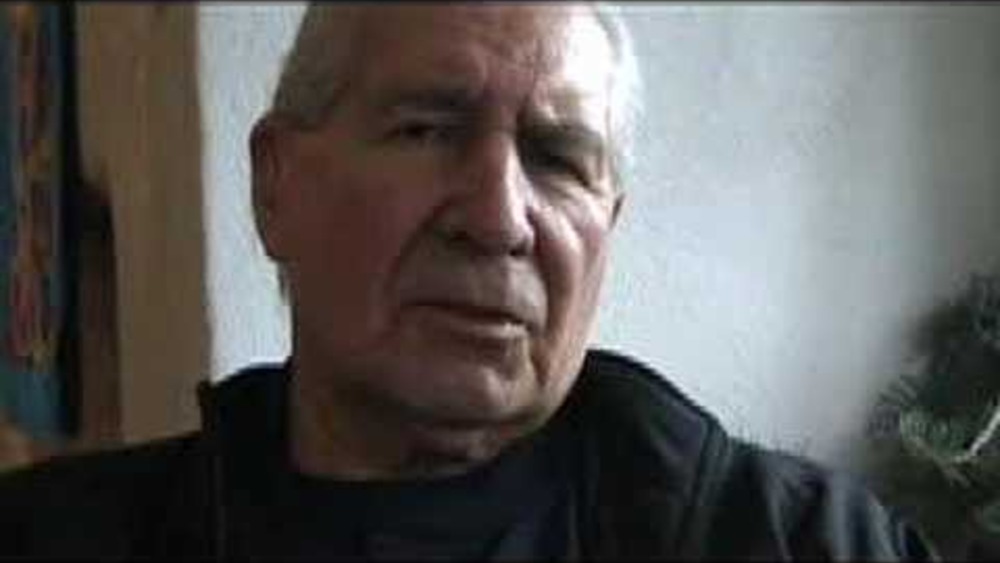Onondaga Chief and Faithkeeper Oren Lyons briefly summarizes the critical, urgent challenges that global warming and resulting climate changes present to Indigenous people and all human beings, and stresses that the principles that traditionally nurtured the relationship between Indigenous peoples and the natural world can serve as a starting point to turning the tide against global warming.
Additional Information
Lyons, Oren. "The Challenges Ahead." Honoring Nations symposium. Harvard Project for American Indian Economic Development, John F. Kennedy School of Government, Harvard University. Cambridge, Massachusetts. September 17, 2009. Presentation.
Transcript
"[Onondaga Language] Thank you for being well. Thank you for being here. And as I was reminded last night by Miriam [Jorgensen] -- where is she -- it's 11 years. It's 11 years this program has been moving. It's fast and it continues. I'm always encouraged by the innovations and by the efforts out there by our people across the Turtle Island and how things are changing. Today, we're going to be hearing from one of our people who [has] been assigned to the White House -- really changing. It's been quite awhile. And I think we have to take advantage of the opportunities that are going to be presented to us. We have to be quick now and we have to move when the opportunity arises and we have to make our own innovations, as things will change.
This past May, there was a report given by MIT and MIT has -- Massachusetts Institute of Technology -- has been studying global warming, probably the most serious of the studies since 1860 to 2090, 2100. And when they first made the report, they predicted that global warming would raise 2.5 [degrees] Celsius by 2090 and that it was moving. And that was early report. I think it was only four or five years ago. And they've studied this from 1860. Now, they made another report in May -- having newer technology and better able to assess -- the very next report, which you should get and become aware of. They said, 'Oops, we were wrong. It's going to be anywhere from five to seven point Celsius warmer.' That's a big wrong. And that's science. And if science is so far behind, then we have to pay attention ourselves to what we see and what we know. I know in the prediction,s many of our nations have been given messages and they've been given predictions, and the Haudenosaunee is one of them.
We receive messages periodically; the last one 1799. And at that time, we were told that these things were going to happen. When the messenger that was receiving this said, 'Well, if that's the case,' he said, 'Well, why bother?' And they said, 'Tell your people that the generation that allows this to happen is going to suffer beyond all comprehension. Tell your people to work hard and not let it be your generation.' So in other words, what happens to us is in our hands; it's up to us. We will determine what our own fate is, no one else. That's across the country. So pay attention to your leaders, pay attention who you put into power and authority; see that they are recommending a positive future for your children. Pay real good attention, because times are shifting and they're going to be very, very rough and coming very fast.
So when they moved up that Celsius it also moved up the time. So we don't have the time that people think we have or talk about. It's very quick, it's compounding -- two compound actions going on right now, which is determining how things are going to go. One is the compounding of human beings; we're exponentially exploding. And we went from 2.5 billion people in 1950 to 6.7 today and climbing very fast -- probably 6.8 now. And that's 59 years, 59 years and more than doubled the population of the world and it's going to do it again. That's water, land, food, security. Those are unsustainable figures, numbers. And the compounding, the other compounding is the ice melt. The ice cap in Greenland is melting and it's accelerating. Everything is accelerating and this is what we're not prepared for -- the acceleration -- and this is what the MIT report supports. Yes, there is an acceleration and it will continue, it will continue to accelerate. So just a reminder and something to think about, in the future, that our children, probably many people in this room, will be experiencing more than you thought you were going to experience. So leadership is important and fundamental principles of your nation are important and the relationship that we talked about, we heard in prayer this morning -- that relationship is fundamentally important to understand how closely we're connected with the earth. We're not separate. We're not separate. We're part of it and that's the message in these prayers, how close we are related, our relatives, our relations.
So in our efforts to maintain and raise the standards of our own living and our own territories and so forth, also pay attention to the spiritual side of things, because that's where your strength is going to be, that's where you're going to rely. It's going to be the knowledge of your grandfathers and your grandmothers -- powerful. It's now being asked around the world, people are now talking about Indian wisdom. Well, they come up to Onondaga and they say, 'Tell me some of your wisdom.' I say, 'Well, I don't know.' 'I'm Episcopalian, all I can tell you about Episcopalians,' is what they told me. But no, over the long hauls we've kept our ceremonies. We just finished the green corn, and I know in your areas you've taken care of that. And you want to do that, that's really important. That's our relationship, that's what's important. So with that I welcome you and we're looking at another year. It's a good fight, we're on the right side and I'm up for it."



